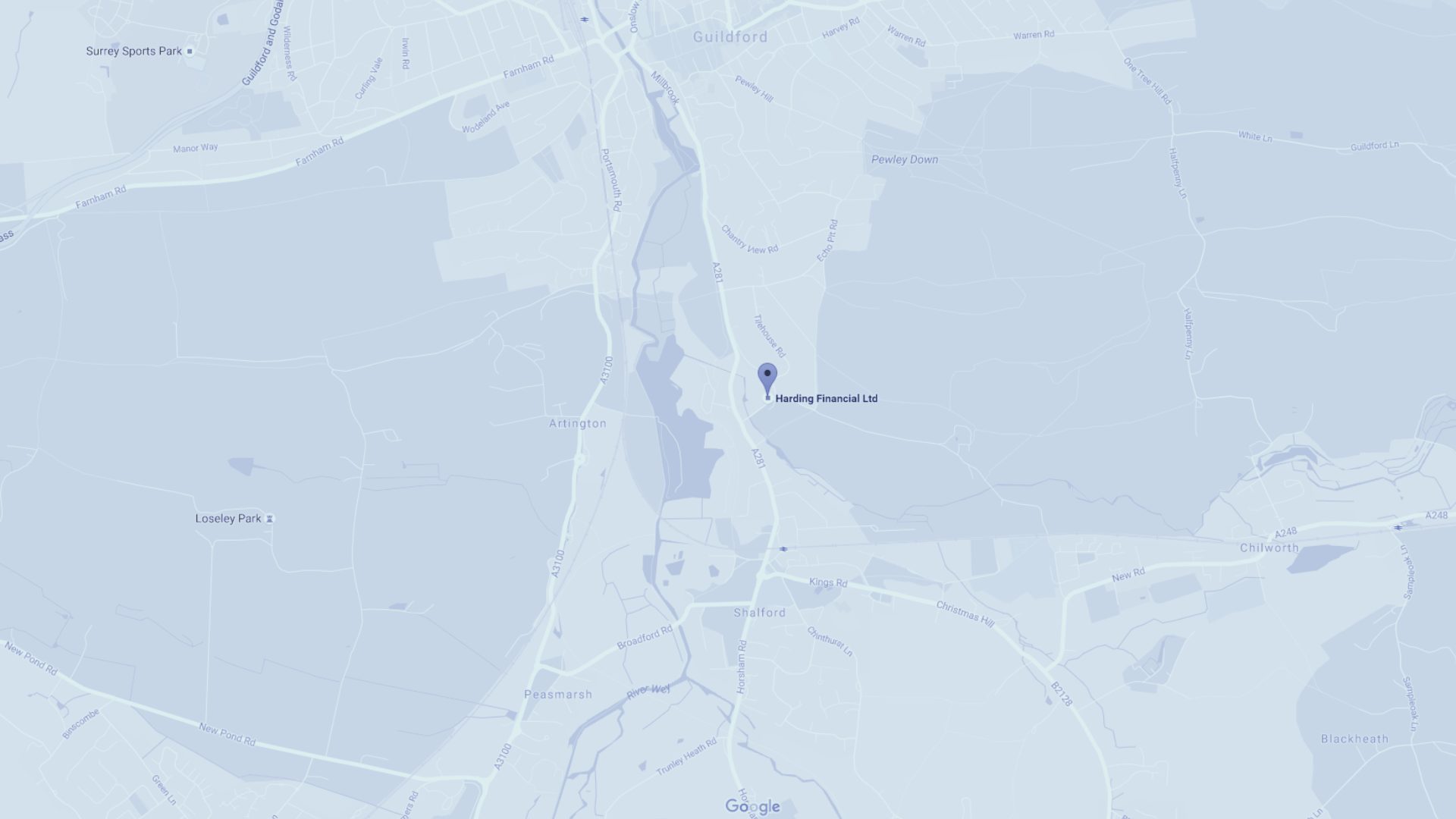Company owners can take advantage of the varying tax regimes for companies and individuals, though these are subject to change. Many also often neglect longer-term planning priorities and the continued financial security of the business, their staff, and of course their families. The case study below illustrates some of the key areas where Harding Financial can help you protect both the people and the business.
BACKGROUND
We were approached by the Directors (and sole shareholders) of a company which had traded for 5 years, and had grown to 10 employees with a turnover of £1million+. However, in common with many smaller, fast-growing enterprises, they hadn't considered the possibility of the Directors falling ill, or even reviewed their own personal situations.
SITUATION
Their concerns were:
- If something happened to one of the directors, nothing was in place to make sure the business continued to function.
- There was no agreement about what would happen to a director's shares if one of them were to die.
- They had excess cash within the business and were keen to start funding for their retirement.
- They had received a 'Staging Date' regarding Workplace Pensions which they were unsure how to handle.
- They didn't have any personal protection in place, so if anything were to happen to them, their families wouldn't receive any financial benefit.
- They wanted to look at any other benefit packages they could offer their staff.
Business protection
We analysed the impact that disability and/or death of each director would have on the business by calculating their contribution to the company profits, identifying additional intangible costs that the business would incur and the cost of replacing each of the directors.
We arranged business protection insurance for each of the directors to be held in trust for the business. This would ensure that on death or disability of director, the business would receive a lump sum payment that they could use to bring in someone new and not have to worry about the financial impact on the business.
Shareholder legacy
We then established that on the death of one of the directors, the spouse of the deceased would inherit their shares, which is not what the surviving shareholders would want. We had the business valued and drew up a shareholder agreement with a cross option agreement. This enables the surviving shareholders to buy the deceased shareholder’s shares and it also allows the deceased’s spouse to sell their shares to the surviving shareholders. We then arranged for shareholder protection for the value of each of the shareholder’s shares and wrote it into trust for the business. This meant that on the death of one of the shareholders, the business has the required funds to purchase the deceased shareholder’s shares.
"By putting a financial plan together for the business, it has allowed us to focus on what we do best and has given us the platform to expand and grow the business"
Pensions
We then reviewed the individual finances of the directors. Most had very little or no retirement provisions. Their view, in common with many company owners, was that their business was their pension. We discovered that the lease on their commercial property was due to expire in 4 years’ time and that the landlord would be willing to sell the building at the end of this term.
With projections of their new pension funding we established that with a small mortgage, they would have the combined funds to purchase the commercial property in 4 years’ time. We suggested that they combine their pensions into a SSAS to purchase the commercial property at that time. This would allow the value of the commercial property to grow inside their pension funds with negligible tax implications on the growth or on the eventual disposal. It would also allow all the rent from the company to be paid into their pension funds with no tax implications. The compounding effect of rental yield and potential capital growth being outside their estate for inheritance tax was also very appealing.
Staff benefits
As the business was relatively new, staff benefits had never been seriously addressed. We then looked at the benefits that the staff were offered within the business. It had never been addressed as the company was relatively new. They had however received a notice from the Department of Work and Pensions providing them with a ‘Staging Date’. We discussed with them the new auto-enrollment scheme that the government have put in place with all employers. They stated that they were keen to engage with their staff and would like us to arrange a company scheme. We arranged for a day to come into the office and talk to all the members of staff about pensions, discussing their funding options and also their individual attitudes to risk. We also took the opportunity to analyse the staff's existing arrangements.
Directors' protection
The individual directors had no contingency in place if they became incapacitated and unable to work. We had mitigated the risk to the company through business protection insurance but it was unlikely that the business could afford to keep paying a salary or dividends for a prolonged period of time. So we arranged for Executive Income Protection to be taken out by each of the directors that would pay 75% of their remuneration if they were unable to work for a prolonged period of time until their state retirement age.
Staff protection
The above benefit also appealed as an offer to staff, so we created a Group Income Protection policy which provided the same protection for other staff but on a lower benefit amount. This meant that when any new member of staff joined, after their probationary period, if they were unable to work for a prolonged period of time (after their sick pay period), they would receive a percentage of their salary until their state retirement age or until they could return to work.
SOLUTIONS & OUTCOME
This particular case may sound complex but it's surprising how many individuals and businesses are in a similar situation. The Directors and staff achieved security for themselves and the business they had built by arranging:
- Business Protection Insurance - Keyman insurance for the business if one of the directors was unable to work or died.
- Shareholder Protection - enabling the surviving shareholders to purchase the deceased's shares of the business.
- Personal Pension Plans - set up for each of the directors to make employer contributions into until they had the funds to combine it into a SSAS to purchase their commercial property.
- Group Personal Pension Plan - this would enable all members of staff to be 'auto-enrolled' and qualified under the government's new Workplace Pension scheme.
- Executive Income Protection - to be paid to each of the Directors if they were unable to work for a prolonged period of time.
- Group Income Protection - an employee benefit for all staff who after their probationary period could be paid a percentage of their income if they were unable to work for a prolonged period of time.
The Directors now have clarity on their long term objectives including buying their commercial premises and funding for retirement. They also have peace of mind knowing that if anything was to happen to any of them, the business - and their spouses - would be cared for. The staff are also pleased with their pension arrangements and the income protection in case anything were to happen to them.
If you feel you could benefit from any of these solutions please give us a call to discuss your specific situation.
"I would have absolutely no hesitation recommending Harding Financial to anyone."
"From the outset, Harding Financial led me through so many options that I didn't even know existed. It was amazing to see how little thought we had put into the longer term picture for the business. We all know where we stand now, and what the bigger picture is for the business and us personally. "
Can we help you and your business?
Call 01483 802010Contact Us
Get in touch today
Call us, email, drop in, or fill in the form so that one of our expert advisers can be in touch.
We look forward to hearing from you and being your financial partner.
Guildford Office:
The Estate Yard
East Shalford Lane
Guildford
Surrey
GU4 8AE
London Office: c/o The Ministry, 79-81 Borough Rd, London, SE1 1DN




